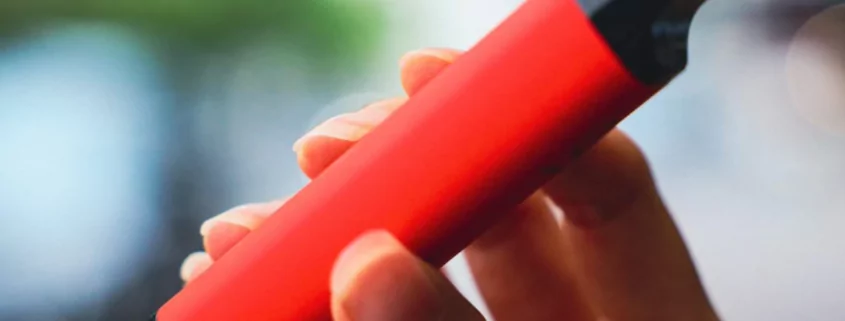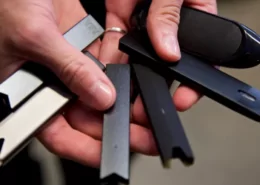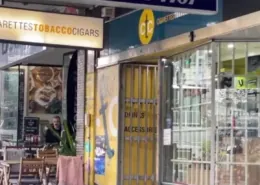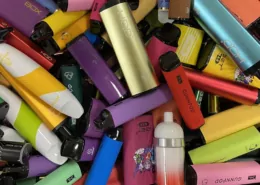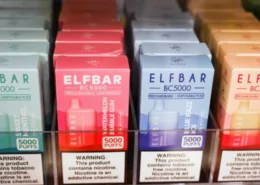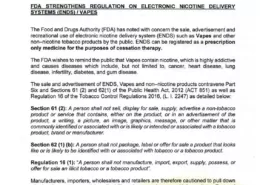Australia Cracks Down on Black Market Vape Sales Amid Youth Crisis
A recent raid on a Melbourne retailer saw over 25,000 illegal nicotine vapes confiscated, part of escalating crackdowns aimed at disrupting the black market catering to underage users. But public health experts argue tighter federal control over vape imports remains necessary to fully address the issue.
Melbourne Raid Seizes Massive Shipment of Banned Nicotine Vapes
The Melbourne raid resulted in over 25,000 nicotine vapes and 2,500 packets of illegal cigarettes being seized, valued around $800,000 AUD. Authorities stated the operation sends a clear deterrent message to other retailers engaging in illicit sales.
It follows similar large-scale confiscations during enforcement blitzes in South Australia and Western Australia targeting the prohibited nicotine vape trade. With awareness of risks to youth increasing, states are cooperating to enforce existing regulations more assertively.
Enforcing Current Laws on Nicotine Vape Sales
All Australian states ban retail sales of vapes containing nicotine without a valid prescription. But black market retailers openly skirt the prohibition through deceptive tactics. Identifying illicit products is difficult without exhaustive lab testing.
By visibly cracking down on illegal nicotine vape supply chains, officials hope to curb availability and signal wider reforms are coming to address regulatory loopholes enabling youth access.
Read more: Australia Vape Ban
Mounting Concerns Over Teenage Vaping Addiction
A key motivation behind escalated enforcement is combating surging rates of underage vaping addiction. Cheap, high-nicotine, discreet disposable vapes in youth-friendly flavors are engendering an adolescent usage crisis.
With tobacco smoking at historic lows among teens, public health leaders warn skyrocketing vaping adoption risks erasing decades of anti-smoking progress. Urgent actions are warranted to reverse the trend.
Federal Reforms Needed to Address Issue at Source
But state enforcement can only do so much without federal oversight of vape imports, where illicit products originate. Health experts argue tighter border controls are the only way to sustainably tackle the issue.
The federal health minister pledged reforms allowing nicotine vape imports only to pharmacies while restricting flavors/nicotine content. But the timeline for implementing these changes remains unclear despite urgency.
How Black Market Vape Brands Target Youth Demographic
In the absence of federal regulations, disposable vape brands use manipulative strategies to hook underage users:
- Kid-friendly candy/fruit flavoring to appeal to young palates
- Discreet, flashy USB-shaped devices easily hidden from parents/teachers
- Deceptive ‘nicotine-free’ labels to obscure real nicotine content
- Massive nicotine concentrations fostering quick addiction
- Social media influencer promotions popular among youth
Stricter marketing and product standards could help counter predatory youth targeting. But tightening import channels offers the most direct solution.
Potential Challenges Hindering Vape Crackdown Efforts
While increased enforcement sends an important message, several factors could impede impact:
- Opaque online retail sales with lack of age verification
- Immense volumes making comprehensive screening infeasible
- Foreign manufacturers beyond local regulatory reach
- Rapid proliferation of new brands and supply channels
- User modifications like adding nicotine to ‘nic-free’ vapes
Officials will need sustained coordination and continued enhancement of surveillance capabilities to overcome these obstacles.
New source: Thousands of vapes seized in Melbourne raid as police send ‘clear message’ to stores
- Mexico City Congress Approves Ban on Vapes & E-Cigs - August 16, 2025
- Is It Illegal to Vape or Smoke While Driving in Minnesota? - August 15, 2025
- American Airlines Vaping Passenger Alleges Assault in Police Report - August 15, 2025

